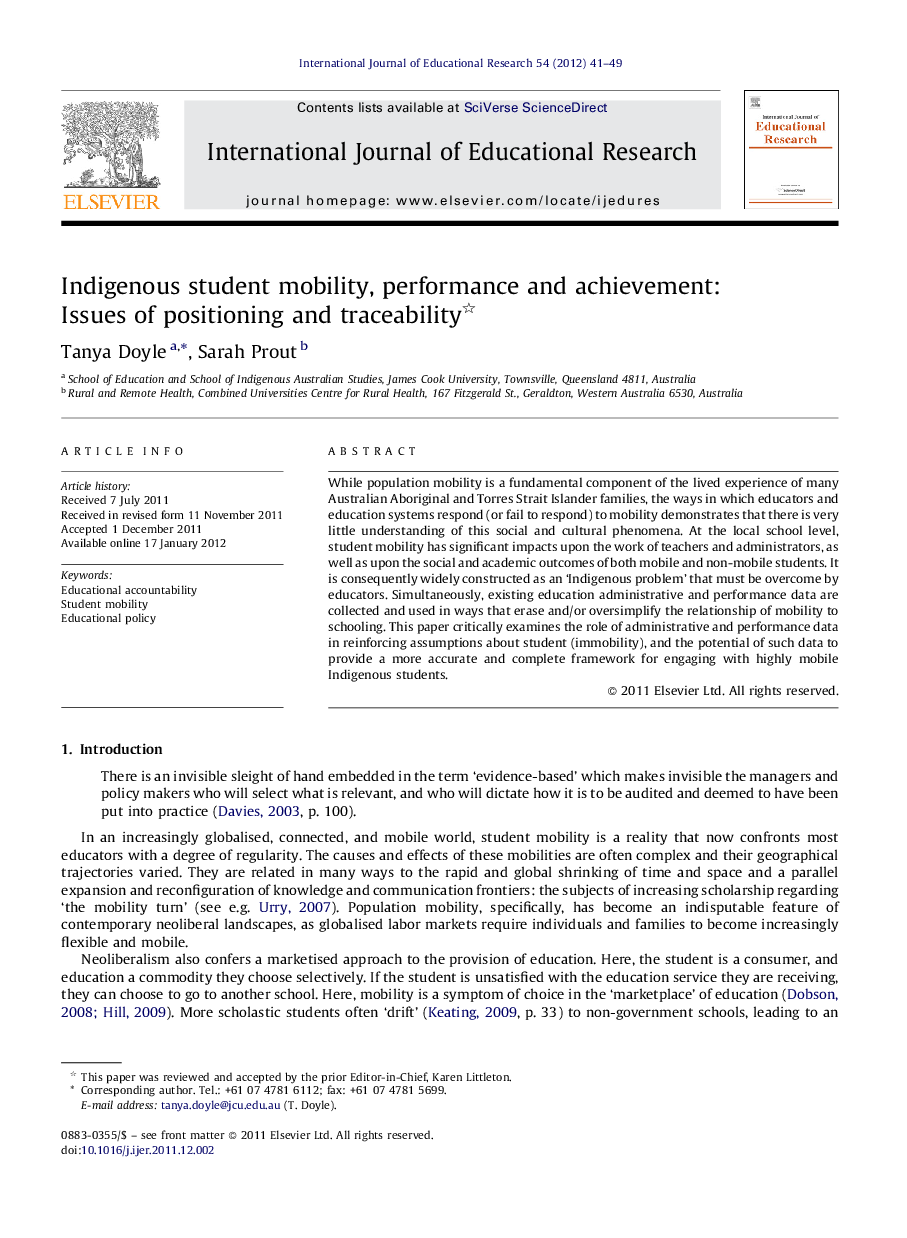| Article ID | Journal | Published Year | Pages | File Type |
|---|---|---|---|---|
| 357005 | International Journal of Educational Research | 2012 | 9 Pages |
While population mobility is a fundamental component of the lived experience of many Australian Aboriginal and Torres Strait Islander families, the ways in which educators and education systems respond (or fail to respond) to mobility demonstrates that there is very little understanding of this social and cultural phenomena. At the local school level, student mobility has significant impacts upon the work of teachers and administrators, as well as upon the social and academic outcomes of both mobile and non-mobile students. It is consequently widely constructed as an ‘Indigenous problem’ that must be overcome by educators. Simultaneously, existing education administrative and performance data are collected and used in ways that erase and/or oversimplify the relationship of mobility to schooling. This paper critically examines the role of administrative and performance data in reinforcing assumptions about student (immobility), and the potential of such data to provide a more accurate and complete framework for engaging with highly mobile Indigenous students.
► We analyse administrative data sets from highly mobile school settings. ► The ‘traceability’ of performance data in highly mobile school settings is tenuous. ► School performance measures cannot be rigorously compared in settings of high student mobility. ► Student mobility is pivotal to the articulation of school performance policy.
